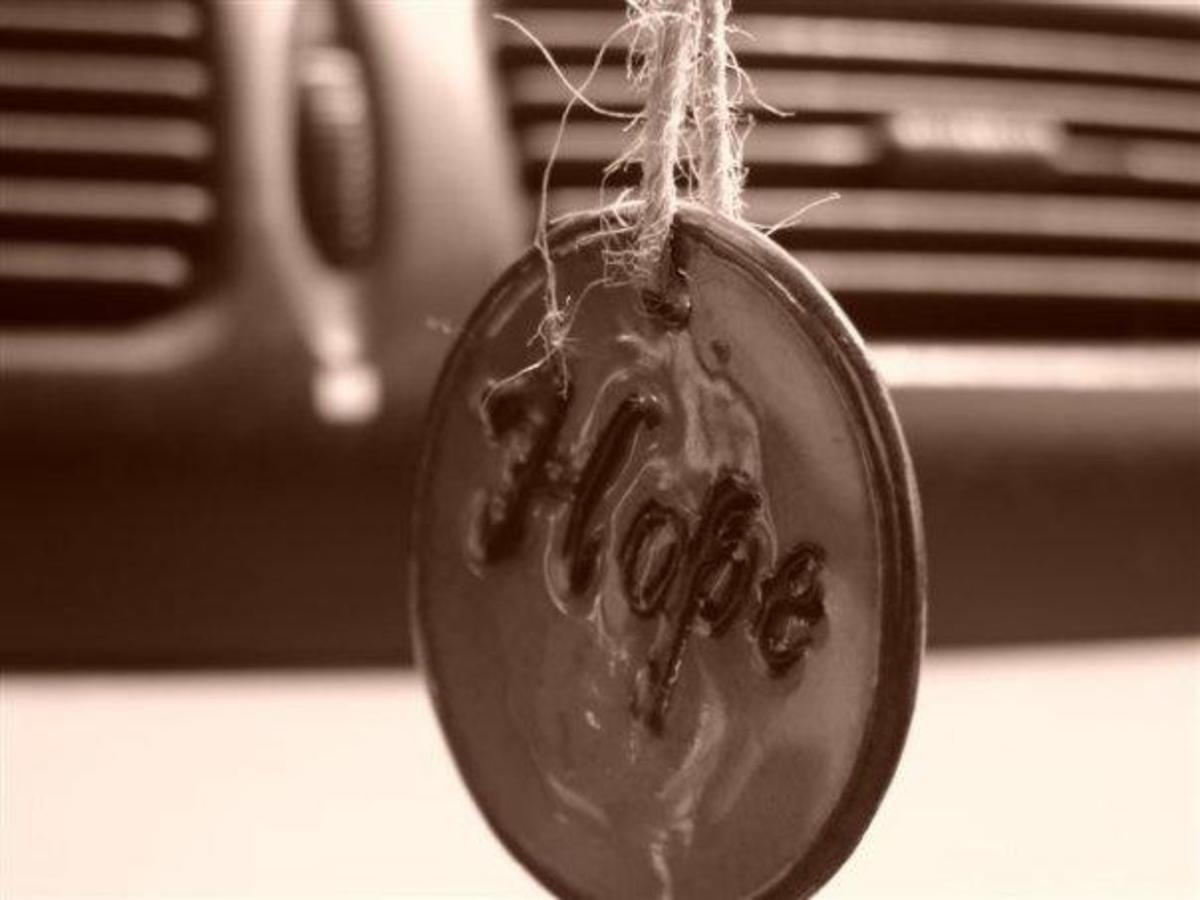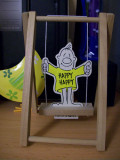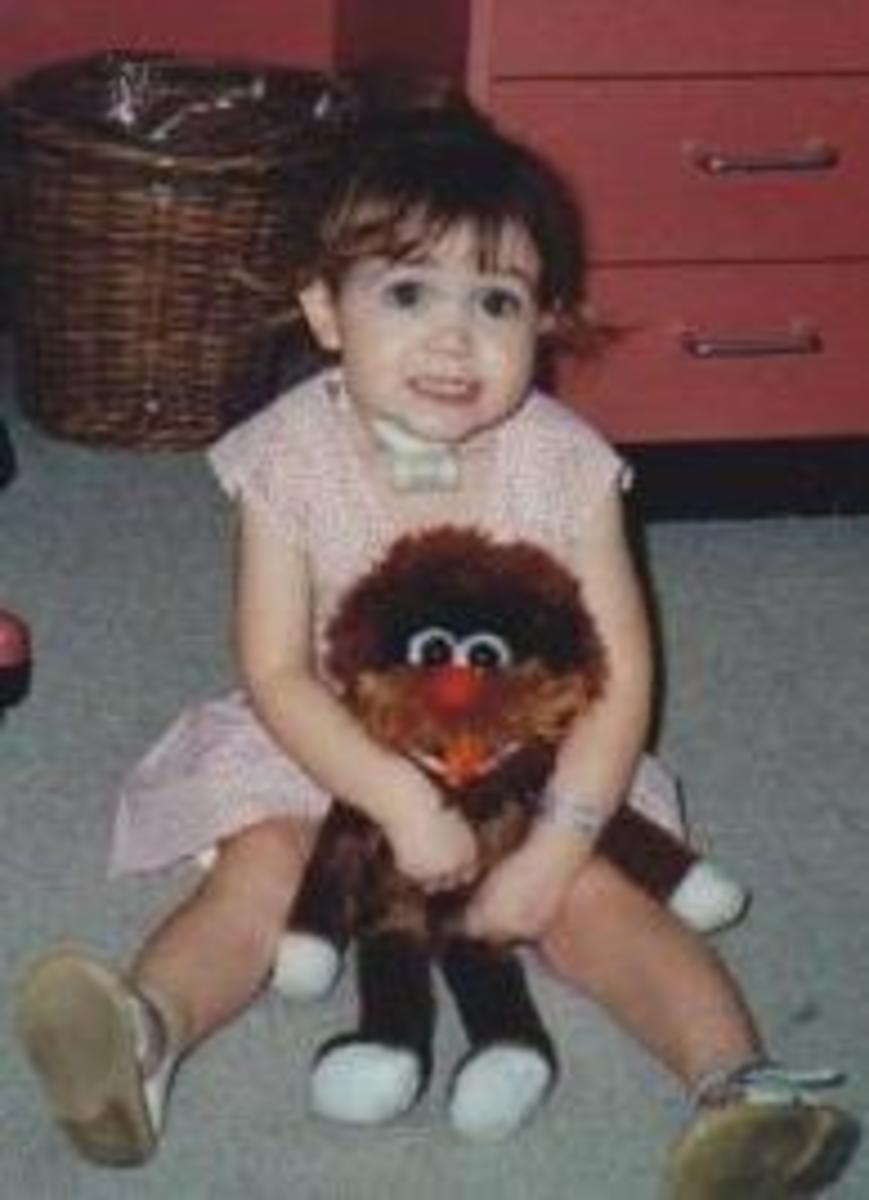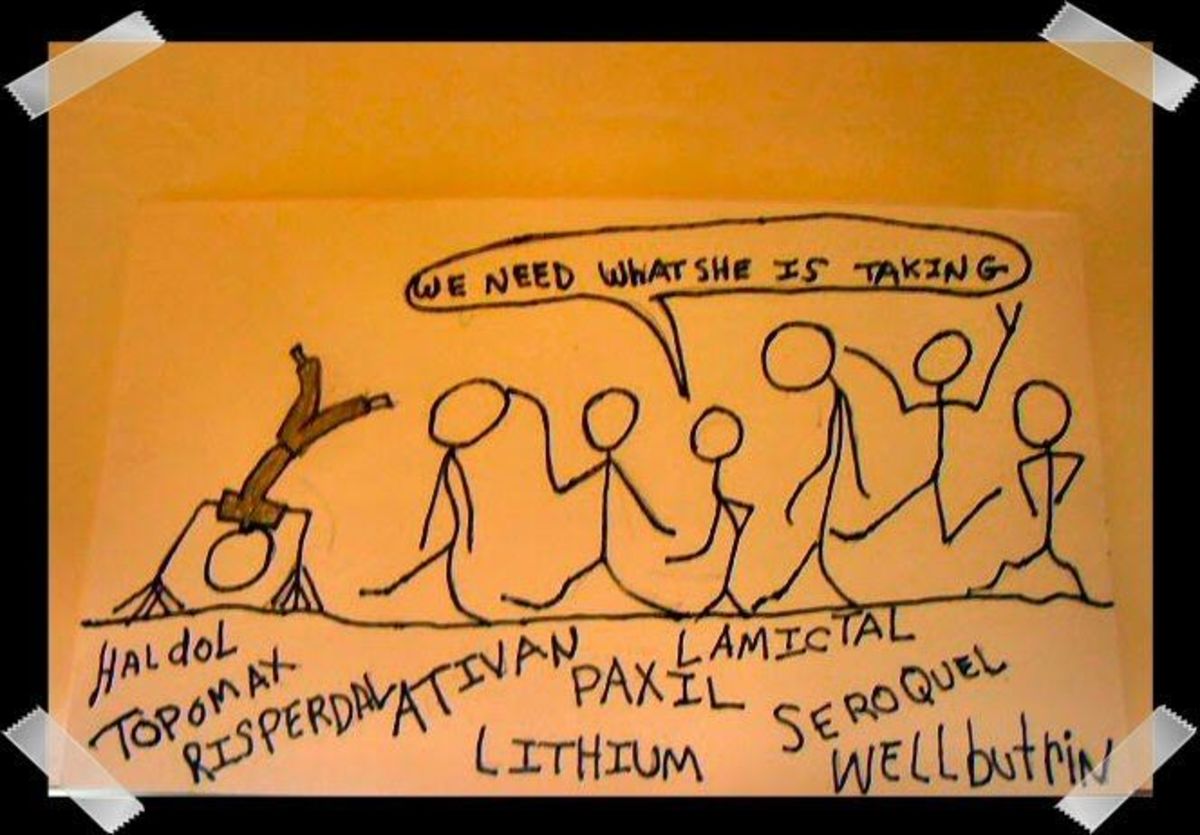Tips On How To Cope Living With Bipolar Disorder

Yes, I Am Bipolar
I have been living with bipolar disorder now for several years. I often tell myself it is just in my head. "I am not really bipolar". It is in my head, it is a chemical imbalance I have no control over. But over the years I have accepted the fact, yes I am bipolar. It USED to be called manic depression. Something I honestly think sounds better than bipolar. Manic depression explains it so much better, don't you think?
Anyway, I have learned a few things along the long road of mental illness. I have learned that yes, I am bipolar. And a big resounding yes, it is in my head, more specifically it is a chemical imbalance in my brain. Or your brain if you happen to be bipolar. So over the last several years after wildly dancing with the dirty devil, I have come to the conclusion that I cannot escape the diagnosis of bipolar disorder. As much as I really wanted to be normal and not touched by the madness of mental illness, that wasn't going to be my lot in life. So here I am, almost normal, bitten by the bipolar bug, felicitously medicated, and fortunately on disability devoting my time to writing, photography, art and overcoming the stigma of mental illness.
Coping Skills Are Essential
I do have some excellent coping skills that work for me most of the time. There are times that my coping skills fail me and I have to be re-medicated, possibly hospitalized to get myself back on track. Not all coping skills are a sure thing. These coping skills are best used when you are in the vicinity of being stable and not hanging from a vine or digging your way out of a deep pit. You must recognize your moods to use your coping skills to the best of your ability.
Because as you have probably noticed we bipolar folks are not exactly perfect. And if your a newbie, you'll soon find out. The first thing to remember is that bipolar disorder can be treated. You are the one who has to choose your treatment plan though. Do you want a natural/herb approach, a no medication approach, a bio feedback approach, or a more popular get on the band wagon medication, psychotherapy approach? I have chose the later. It seems to finally be working for me. But we all must choose our own path of treatment.
For me I have jumped on the medication psychotherapy approach. I have dabbled briefly with the herbs and vitamins but it to expensive for one thing, very technically involved for another. If you have the time to do research involved and the money this is a decidedly viable option to try if you think this may be helpful for you.
Of course the no medication option is going strictly mood to mood is radical, but I know people who do it. They ride out their cycles, going in and out of the hospital on a regular basis. They self medicate to keep the episodes on a more even keel, eventually plunging head long into a dark abyss of psychosis. Not the best way to be if you ask me. It's always a good idea to have your medical team on board with whatever option you choose.
Some bipolar folks have claimed they trained themselves to be better altogether. I am not so sure it can be done. If so, then that is a very special person. With the severity of my bipolar 1, there is no way in this world I could cure it by myself. I leave enough debris behind with treatment, without treatment, I'd be much more miserable for life I believe. I reiterate, choose your own treatment plan. Work it, live by it, make it work for you.
I will list what has worked for me. Be aware it may not work for you. You can only explore those options to find out. The list below are things I do myself. I try to stick to this routine as closely as possible. Otherwise I am just a mess. When I do have an episode disrupt my routine I keep going, kicking and screaming. And hope I don't fall to deep in the deep dark hole.
Sometimes my medications stop working, sometimes I have things going on in my life that suck and I have bad days, sometimes I can't fight it and end up in the hospital. I am not always stable. I fight everyday to stay well and healthy. I work at it very hard. I drive the people around me crazy, they are the ones who let me know what mood I am in, "why are you talking so fast"? "you just moved last week!" "Didn't you max out all your credit cards?" "Boo do you realize it is 3 am?" "Don't you think you should bath," "You look like crap" Thank you for these people. A little nagging never hurt anybody if it means possibly saving your life.
What is Bipolar?
Practical Coping Skills
- Learn to identify your triggers. This is essential because if you can see them coming, you can take precautions to ward off a full blown episode. An example, I hate funerals, it is one huge trigger for me, so going to a funeral is something I try to avoid if at all possible. A kind word of sympathy is all I can often offer.
- Taking your medication as prescribed by your psychiatrist is very important. They know the proper dose for your weight and diagnosis. If you have side affects or cannot tolerate the drug, be sure to tell your psychiatrist exactly what your experiencing. It is the only way to find the right combination of medications. be honest and assertive.
- Keep all therapy and doctor appointments. It is significant they know what state of mind you are in, if your not doing well, they can help you decide if you need a medication adjustment or a possible hospitalization. Having consistency with your psychiatric team is the best way for them to help you. Keep a calendar in the open so you can see exactly when your appointments are.
- Stick to a routine. This is a big one for me. It took awhile, but you can do it. Do the same things everyday at the same time to establish your routine. Take your medications at the same time everyday. Go to bed at the same time every night, getting enough sleep helps prevent a manic episode. Having a routine will help you manage your everyday life easier, and stability will be a reachable goal.Be consistent is crucial.
- Exercise 4-5 days a week if possible. With mood swings it is kind of hard to tell if your going to feel like taking that walk everyday. If you're in the depressive phase of your illness, make yourself do something, walking, moving, pacing, whatever, just as long as your moving. A bike ride is a nice way to get moving. You can go at any pace, and any distance. I prefer to walk when I get up, it helps with that early morning anxiety I get.
- Take a shower everyday. Wash away negative thoughts. A good way to just let everything go. Sometimes when your depressed a shower is the last thing you want to do, but try, it really is helpful. get a fresh start on your day, a shower can help you do that.
- Keep a journal. Keep track of appointments, thoughts, dreams, mood changes, art, poetry, record it everything. You will be able to look at triggers, mood changes, things you perhaps want to change. It is also good when you need to share something important with your therapist or psychiatrist. Keep a notebook in view so you don't forget to write.
- Find some hobbies. Having things you enjoy will keep you busy. If you like to dance, go out and dance. Teach yourself how to play a musical instrument. I love to play guitar, it keeps your hands busy while learning to play. Go for a walk taking photographs, write, there are many places on the INTERNET to publish your work. HubPages to start. Start a blog, it gives you a responsibility, and a chance to make new friends. Watch TV and write reviews. Swimming is one of my all time favorite activity's. I always feel better after spending an hour in the pool.
- Call your friends and family. If you get along with them, that is even better. Having a support network is very important to your well being. Talking about everyday things, visiting, going out, and enjoying yourself with people will help you feel you are not alone. Share with them about your bipolar disorder, help them understand mental illness better.
These tips are pretty easy to do if you are willing to work on them. If we don't take a proactive role in our own mental illness nobody else is going to do it for us. Unless they decide they want to commit us to the giggle house. So it is our responsibility to take care of ourselves and learn our strengths and learn from our weaknesses. With bipolar disorder we do not know what to expect. When it gets bad enough we need to know what we are supposed to do. Call a hotline , friends, a therapist, and yes even the hospital. We have to know what works for us if we are going to succeed within ourselves.
- 988 Suicide and Crisis Lifeline. Help is available. Speak with someone today if you are in crisis.
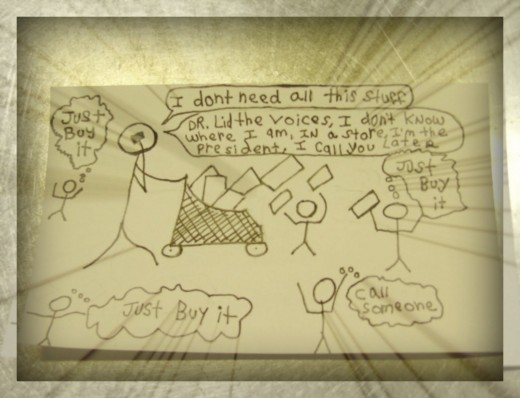
This content is accurate and true to the best of the author’s knowledge and does not substitute for diagnosis, prognosis, treatment, prescription, and/or dietary advice from a licensed health professional. Drugs, supplements, and natural remedies may have dangerous side effects. If pregnant or nursing, consult with a qualified provider on an individual basis. Seek immediate help if you are experiencing a medical emergency.
© 2008 Boo McCourt


